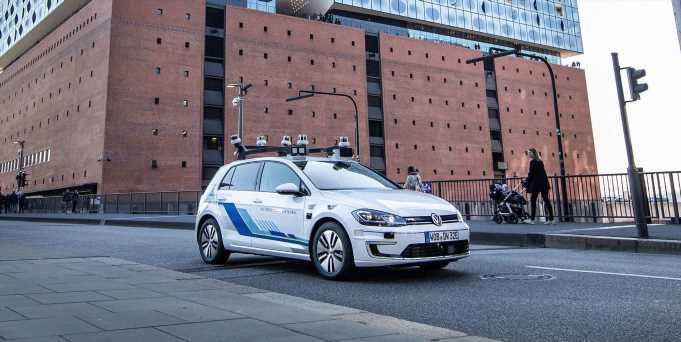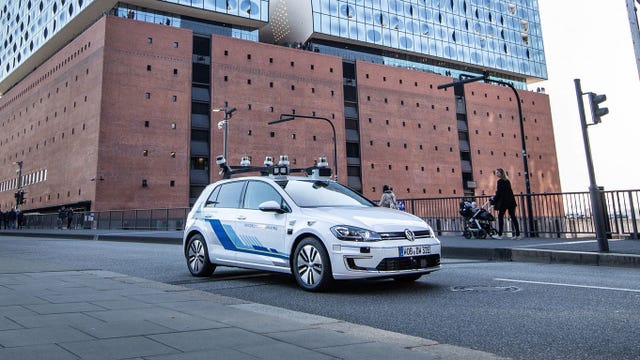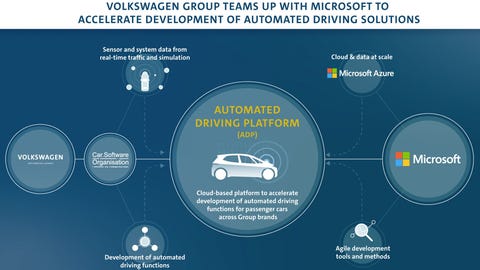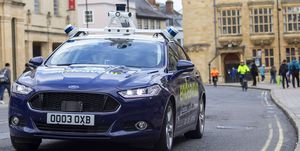Volkswagen is already developing its own autonomous driving technology, even having shown off a working Level 4 prototype a couple of years ago. Now it’s teaming up with Microsoft to develop a whole range of automated driving systems including a cloud-based Automated Driving Platform (ADP) based on Microsoft Azure to speed up development. The new partnership will expand upon their collaboration in the sphere of connected car systems and the Volkswagen Automotive Cloud, which is being developed to manage all of the automaker’s digital mobility services.
One of the major aims of this joint effort is to reduce development cycles from months to weeks using Microsoft’s machine learning and data expertise.
“This is the next evolution of our foundational work with the Volkswagen Group to enhance their transformation as a software-driven mobility provider,” said Scott Guthrie, executive vice president of Cloud + AI at Microsoft. “The power of Microsoft Azure and its computer, data, and AI capabilities will enable Volkswagen to deliver secure and reliable automated driving solutions to their customers faster.”
What does this mean for future VW car owners and users?
Future cars with advanced levels of automation — Levels 3 through 5 — will rely on Volkswagen’s Car.Software cloud-based platform for everything, from connected car systems to car sharing to autonomous driving tech. You won’t have to wait too long to experience the first of these systems, as the initial test fleets with Volkswagen Automotive Cloud (VW.AC) — featuring over-the-air updating popularized by Tesla — will roll out later this year; production is targeted for 2022. Among other things, VW.AC with OTA updates will mean advanced driver-assist system functionality could be added and expanded to existing cars over time, giving them more advanced features throughout their life cycles, years after they were initially purchased. This goes for Volkswagen brand vehicles and others owned by the Volkswagen Group, including Porsche and Audi.
The expansion of a partnership with Microsoft is a part of VW’s push to invest in the digitalization of its cars across several brands. The VW Group plans to invest approximately 27 billion Euros in this direction alone by 2025, and also increase in-house development of these capabilities via its Car.Software unit, which pooled together various development programs.
“As we transform Volkswagen Group into a digital mobility provider, we are looking to continuously increase the efficiency of our software development,” said Dirk Hilgenberg, CEO of the Car.Software organization. “We are building the Automated Driving Platform with Microsoft to simplify our developers’ work through one scalable and data- based engineering environment. By combining our comprehensive expertise in the development of connected driving solutions with Microsoft’s cloud and software engineering know-how, we will accelerate the delivery of safe and comfortable mobility services.”
Truly advanced autonomy is still too far on the horizon even as cars with Level 3 capabilities hit the market outside the U.S. And when it comes to success stories of over-the-air updates, perhaps it’s prudent to remember there are some very real hardware limitations that Tesla itself is running up against as it rolls out what it calls Full Self-Driving, the reality of which is far from what the name suggests.
Industry experts are increasingly warning that OTA updates are not a panacea given the inherent hardware limitations of cars, and that software alone cannot make up for the lack of sensor systems required for even higher levels of autonomy. In effect, a car can get all the OTA updates it can, but that can’t fill in for missing sensor hardware or make up for low-resolution cameras.
Will you be picking out your next car based on the level of autonomy it offers? Let us know in the comments below.
Source: Read Full Article




